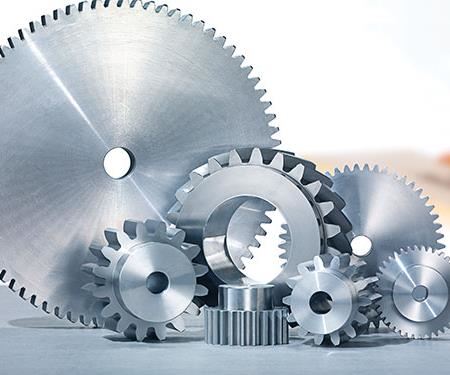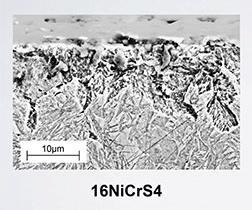IQ Steel for Smarter Design
Ovako has developed an "isotropic-quality" material that offers advantages in strength and weight to accommodate part design with less material.
The properties of a part’s material directly affect the way that part can be designed. Ovako—a producer of engineering steel based in Stockholm, Sweden, with North American operations located in Fort Mill, South Carolina—has developed an “isotropic-quality” material, IQ-Steel, which is described as a “clean” steel with fewer inclusions than comparable standard grades.
The company says a direct advantage provided by this material is design freedom. The stronger steel enables the design of lighter-weight parts using less material.
IQ-Steel is the product of R&D focusing on a practical application. The company was seeking a superior steel for manufacturing precision bearings, which resulted in another of its brands: bearing-quality, or BQ, steel. Recognizing that the proprietary process had implications beyond bearings, Ovako introduced IQ-Steel into the European market some 10 years ago. The company’s U.S. office opened in 2004.
As the company’s president for North America, Jamie Price is traveling the country and attending tradeshows such as the recent Gear Expo in Detroit, educating potential customers on the benefits of IQ-Steel.
Early-stage target markets include automotive, particularly transmission manufacturing, and the wind energy sector, where weight reduction is at a premium for all components within the nacelle and where stronger gears can ward off gearbox failure.
Mr. Price cites multidirectional fatigue strength among the material’s attributes. By definition, isotropic materials are “identical in all directions,” and fewer inclusions, or impurities, result in structural homogeneity. He says IQ-Steel obtains approximately a 900-MPa fatigue limit in both longitudinal and transverse directions, as opposed to conventional steels, which deliver 400 to 500 MPa.
He says these conventional steels are composed of nonmetallic foreign substances produced by chemical reactions during the melting and pouring process, disrupting the steel’s structural integrity and leading to cracks and early fatigue failures.
According to Mr. Price, gears and other components made from the steel, such as camshafts, function more quietly and create less vibration than those made of standard-grade steels due to a smooth, uniform finish. This has a direct effect on the life of the part, and on mating or adjoining surfaces, as well as on energy consumption.
With emissions standards tightening in the United States and elsewhere, engineers are being charged with designing automotive transmissions that are smaller and lighter, and deliver more power than previous generations. This is an application for which Ovako says IQ-Steel is particularly well-suited.
Related Content
-
DN Solutions Responds to Labor Shortages, Reshoring, the Automotive Industry and More
At its first in-person DIMF since 2019, DN Solutions showcased a range of new technologies, from automation to machine tools to software. President WJ Kim explains how these products are responses to changes within the company and the manufacturing industry as a whole.
-
4 Steps to a Cobot Culture: How Thyssenkrupp Bilstein Has Answered Staffing Shortages With Economical Automation
Safe, economical automation using collaborative robots can transform a manufacturing facility and overcome staffing shortfalls, but it takes additional investment and a systemized approach to automation in order to realize this change.
-
4 Tips for Staying Profitable in the Face of Change
After more than 40 years in business, this shop has learned how to adapt to stay profitable.











.jpg;maxWidth=300;quality=90)





